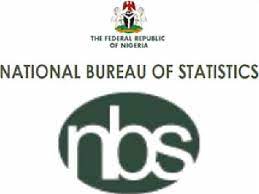The National Bureau of Statistics (NBS), Nigeria’s statistical system coordinating agency, at the weekend hinted that it would commence the National Agricultural Sample Census (NASC) this week in eight pilot states after series of training of enumerators and other personnel that would be involved in the exercise nationwide.
The pilot states are Ekiti, Jigawa, Delta, Benue, Taraba, Akwa Ibom, Ebonyi and Ondo.
The objectives of the exercise are to provide basic information on the structure of the agricultural sector in Nigeria; to provide a comprehensive frame and register for conducting subsequent agriculture and household-based surveys; to collect relevant data that will assist governments at all levels to formulate policies and monitor interventions aimed at ensuring food security the country.
The survey, which is organized in collaboration with the Federal Ministry of Agriculture and Rural Development, World Bank and Food and Agriculture Organisation (FAO), is also aimed at providing data for the proposed rebasing of the National Gross Domestic Product scheduled for 2023.
The Statistician General of the Federation and Chief Executive Officer of the National Bureau of Statistics (NBS), Prince Adeyemi Adeniran, gave the hint on the kick-off the NASC in his delivered during the 2022 African Statistics Day at the statistics agency’s headquarters in Abuja.
Based on the importance of the survey to ongoing efforts targeted at updating the national statistical system’s database, he appealed “to all stakeholders for their maximum support towards making the conduct of the exercise a huge success.”
Speaking on the theme of the 2022 African Statistics Day ‘Strengthening Data System by Mordernising the Production and Use of Agricultural Statistics with a View of Informing Policies to Improve Resilience in Agriculture, Nutrition and Food Security on the African Continent’, the Statistician-General stressed the growing importance of the agricultural sector to Nigeria’s and global food security and described the NASC as timely.
According to him, the NBS is championing the cause of food security with the use of digital tools in gathering agricultural data in furtherance of its statutory mandate to guide governments in policy formulation and implementation and farmers and stakeholders in taking decisions that will improve productivity and contributions of the sector to the nation’s GDP on sustainable basis.
He expatiated: “The collection process of agriculture data is by far one of the most tedious amongst the various types of data we collect in NBS. It is also one of the most expensive data collection exercises due to the extensive nature of the sector and the kind of manpower and time required to adequately cover it.
“So, modern methods and innovations are required to support and ease the production of Agriculture data in Nigeria and across Africa. I’m glad to say that in NBS we have already started this process”, Adeyemi added.
Recalling the various activities conducted so far by the Bureau to ensure the planned take-off of the NASC, including the completion of the first ever digital listing of farming households and establishments all over the country about two months ago, the NBS’ CEO said that the exercise would entail a near complete enumeration of all farming households and establishments in the country.
He explained that the survey would collect much more detailed information including farming practices and inputs, types of agricultural products and size of area cultivated, quantity of yield, and much more in the statistics agency’s efforts to achieve its mandate along the lines of producing adequate agricultural statistics for inform policy planning and implementation.
The Statistician-General commended the World Bank, UNICEF and UNDP, CBN, the Nigerian Statistical Association (NSA) and other local and international organisations that have been supporting the NBS board and management in their sustained drive to achieve its mandate.






